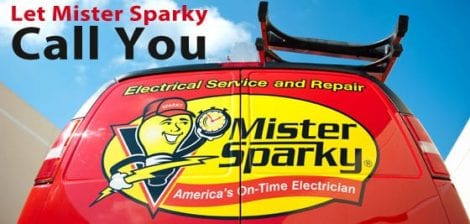Electrical vehicles (EV’s) are emerging as the preferred option by customers, and consequently, more car manufacturers are producing electric vehicles. You might have heard people compliment EV’s for their untroubled, quiet, and convenient lack of unnecessary fueling stops. More and more gas stations are choosing to provide electric charging for EV owners. Just around Houston, there are over 1093 EV Charging stations you can access. There are also many different types of home electric car chargers available, and more will be manufactured as the popularity of EVs emerge. If you have an electric vehicle, you should install a home EV charging station instead of making long stops at the public charging station. Though, you must use a certified electrician to perform the Electric Car Charger installation, if you DIY, manufacturers will void the warranty.
What Different Types of Electric Car Chargers are There?
There are three major types of electric car chargers Houston:
- Energy Star Certified Level 1
- Energy Star Certified Level 2
- Energy Star Certified Level 3
We categorize electric vehicle chargers according to the power output, which directly influences the charging rates of an electric vehicle EV.
Direct Current is costly to install but is the fastest, with 80% charging in 20 minutes. DC fast charges charge some models up to 80% in about 20 minutes, whereas in some models, the charging time is an hour or more. DC fast chargers supply power at 50 kW and operate on CHAdeMO or CCS charging techniques.
Car models such as Nissan Leaf employ the CHAdeMO rapid charging. Level 2 chargers (Fast chargers) supply AC power at either 7 kW or 22kW. 22 kW chargers recharge your car in under 2 hours, while 22 kW chargers recharge your car in about 6 hours. However, your car’s inbuilt charger influences charging rates as some models are only compatible with the 7 kW charger. Level 1 chargers supply power at a rate of 1.5kW and are cheaper than the other chargers.
Most EV car owners employ slow charging, leaving their cars to charge to 100% overnight. Slow charging is unsuitable for public EV charging stations because it takes a long time to charge a car fully. It is worth noting that the faster chargers use more kilowatt-hours when charging your car.
Do All Electric Vehicles Use the Same Type of Electric Car Chargers, Houston?
Each electric vehicle uses the same charger for level 1 and level 2 charging. The universal J1772 connector is compatible with any electric car. However, you will be required to bring your cable if your car uses one that is non-rapid charging.
Your car manufacturer gives you the cable upon purchasing the car, and you should store the cable inside your car. Although all cables are compatible with the charger, you should carry your cable since there are variations in inlet sockets. For rapid chargers, the cables are not detachable from the charging unit, so it is necessary to find a charger that is compatible with your vehicle model.
What Size Electric Car Charger Do I Need?
Your electrical installation and the car’s onboard range influence the size of the EV charger you need. Generally, most cars have voltage specifications of 40 amp and a 240-volt charger measurement. These specifications should guide you when purchasing your car’s charger.
It would help if you also considered your model’s charger type- rapid, fast, or slow. The amount of space you have impacts the cord length to choose. It is more convenient to store shorter cables, but longer cables allow drivers to charge the vehicles at any distance from the charger. For example if you are keeping your car in the driveway it worth looking into longer charging cords. There are two options of plug types to choose from, 14-50 plug or a 6-50 plug. The 14-50 plug is vital for a 40 amp home charging setup. While the 6-5o plug is better fit for a home that is modified for a 240-volt charging station.
What are The Dangers of Installing the Charger Myself?
A DIY installation of the charger might result in exposed cables that are worn out with some wires extruding. The extruding wires pose a safety threat since people might get electrocuted. If you blunder while installing the charger, you could cause large-scale circuit shorting or a fire in the worst scenario. Electric vehicles require a high amount of power of 240 volts. Installing your own electric car charger Houston can void the warranty of some vehicles or charging stations.
Can Mister Sparky’s Electricians Install Different Types of Chargers in Your Home?
The majority of the people prefer home charging to public charging. Charging at home is easy since you it is easier to do things around the house, or even sleep while your car is being charged.All that needs to be done is, plug in your vehicle, and walk away. If you are using a level-3 charger at a charging station it is not as easy to continue on, doing the things you need to get done. Usually you are stuck waiting in your car or in a lobby of a charging station.
Furthermore, it is cost-effective to charge at home at night due to the affordable tariffs. Installing car chargers at home is much more convenient in the long run, you should always remember to carefully select the location for your charger. Do you prefer installing the charger in a garage or the driveway? Pay attention to the type of charger indoor rated or outdoor rated before installation. For best results it is important to call your locally serviced Mister Sparky’s Electrician in Houston to ensure your charger is installed properly.
Why Is It Important to Get a Certified Electrician to Install My Electric Car Charger?
Sound knowledge of your houses’ electrical circuit, and the circuit of your charger is crucial for proper installation. Professional service is required to prevent your charger from short-circuiting due to a botched installation. With proper installation, you will be ensure that your cars expensive battery is not ruined as well as protection of your home in the process. Hiring a certified electrician also ensures adherence to regulations such as wiring regulations. Electricians validate that the installation process adhered to the rules and guaranteed safety.
In some cases, the government will require you to produce an adherence certificate or face a fine. There are also some insurance companies that require you to have the adherence certificate if your charger becomes faulty. For example, the charger might be destroyed by excess electric surge or lightning. Hiring a certified electrician is important because insurance companies might not cover such unforeseen damages if you do not provide an adherence certificate.
In Conclusion
We can categorize car chargers according to the charging speed as level 1, level 2, or level 3. All electric cars use the same charger, but the charger end varies in the inlet sockets. Ultimately, you should hire a certified electrician to install home chargers to prevent damage and ensure your safety.
Mister Sparky Electrician Houston, America’s On-Time Electrician, serves Houston, Texas and the cities of Katy, Sugar Land, Cypress, Spring, The Woodlands and others with a team of certified electricians. In addition to emergency electrical repairs, some of the electrician services provided by the company include electrical outlet/switch repair, ceiling fan installation, lighting installation, wiring repair, landscape lighting installation and home electrical inspections. Call us today at: (281) 907-8418.













